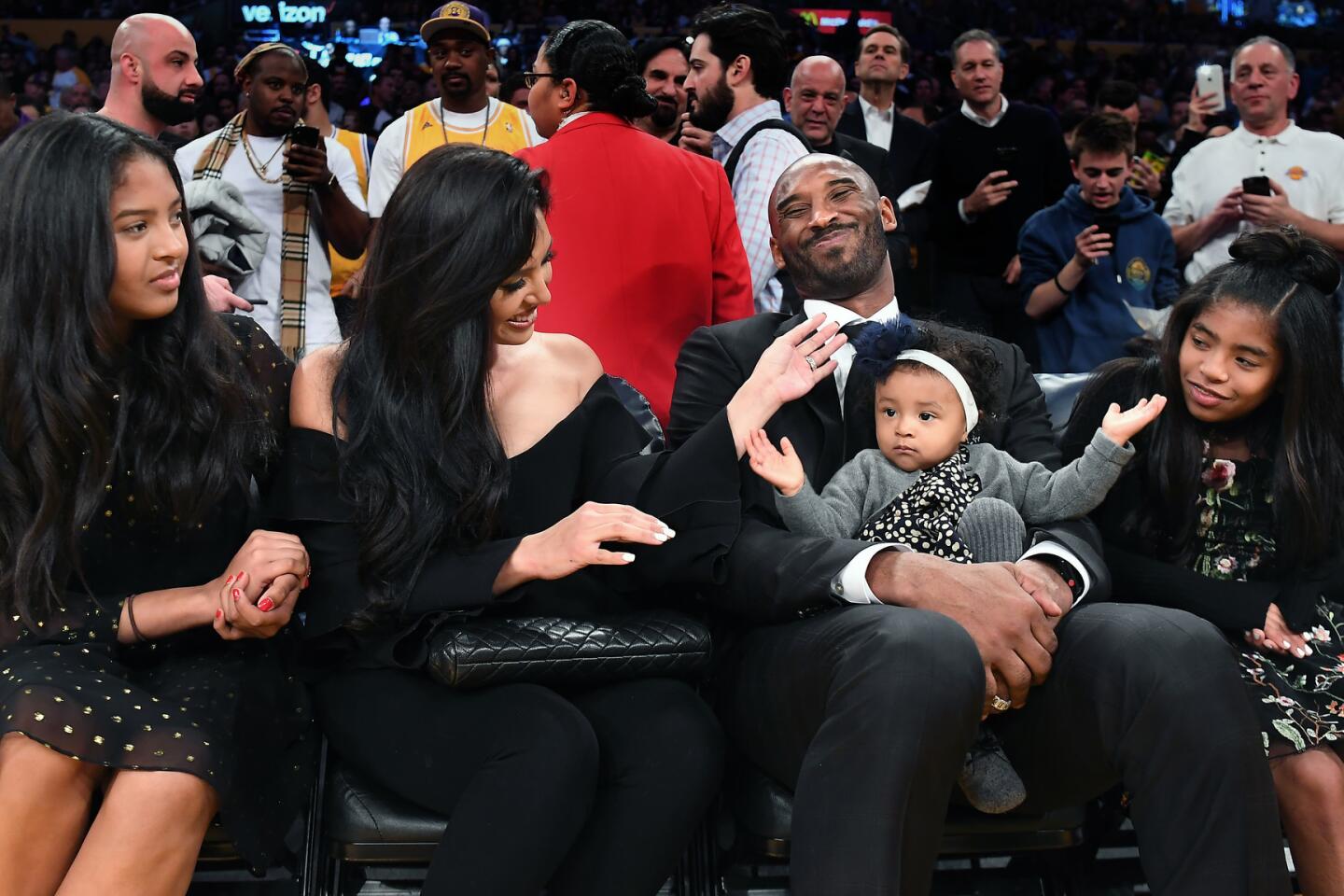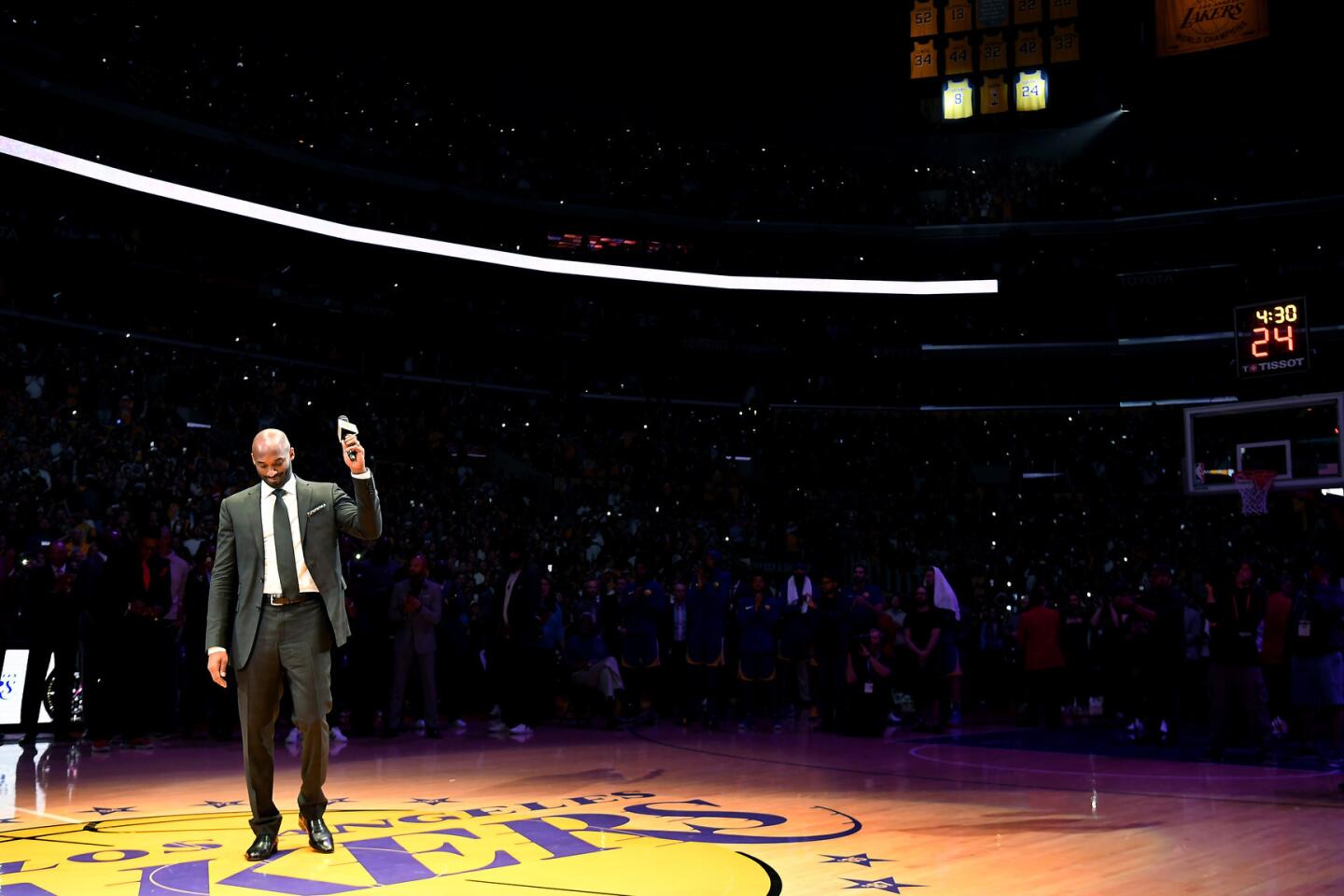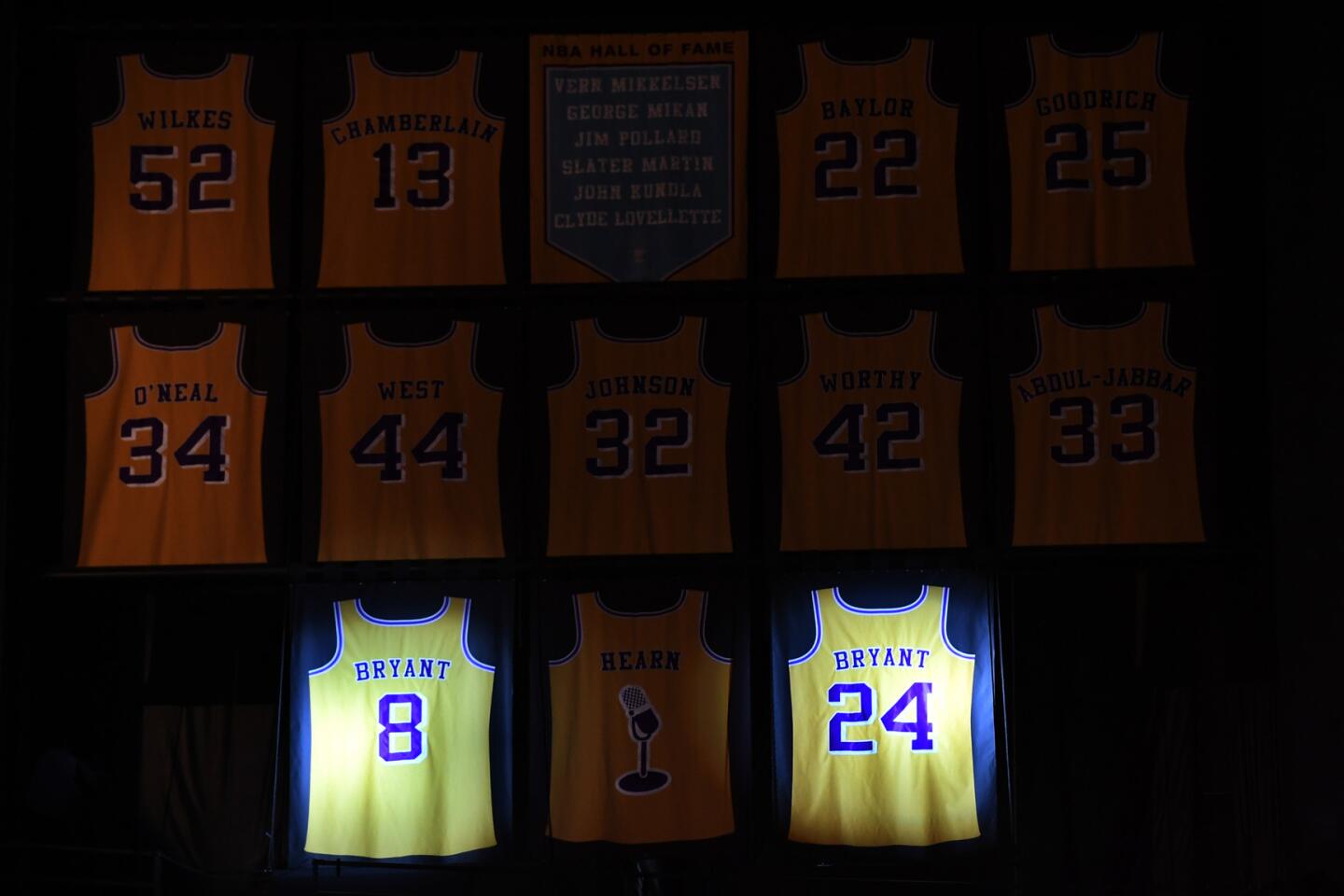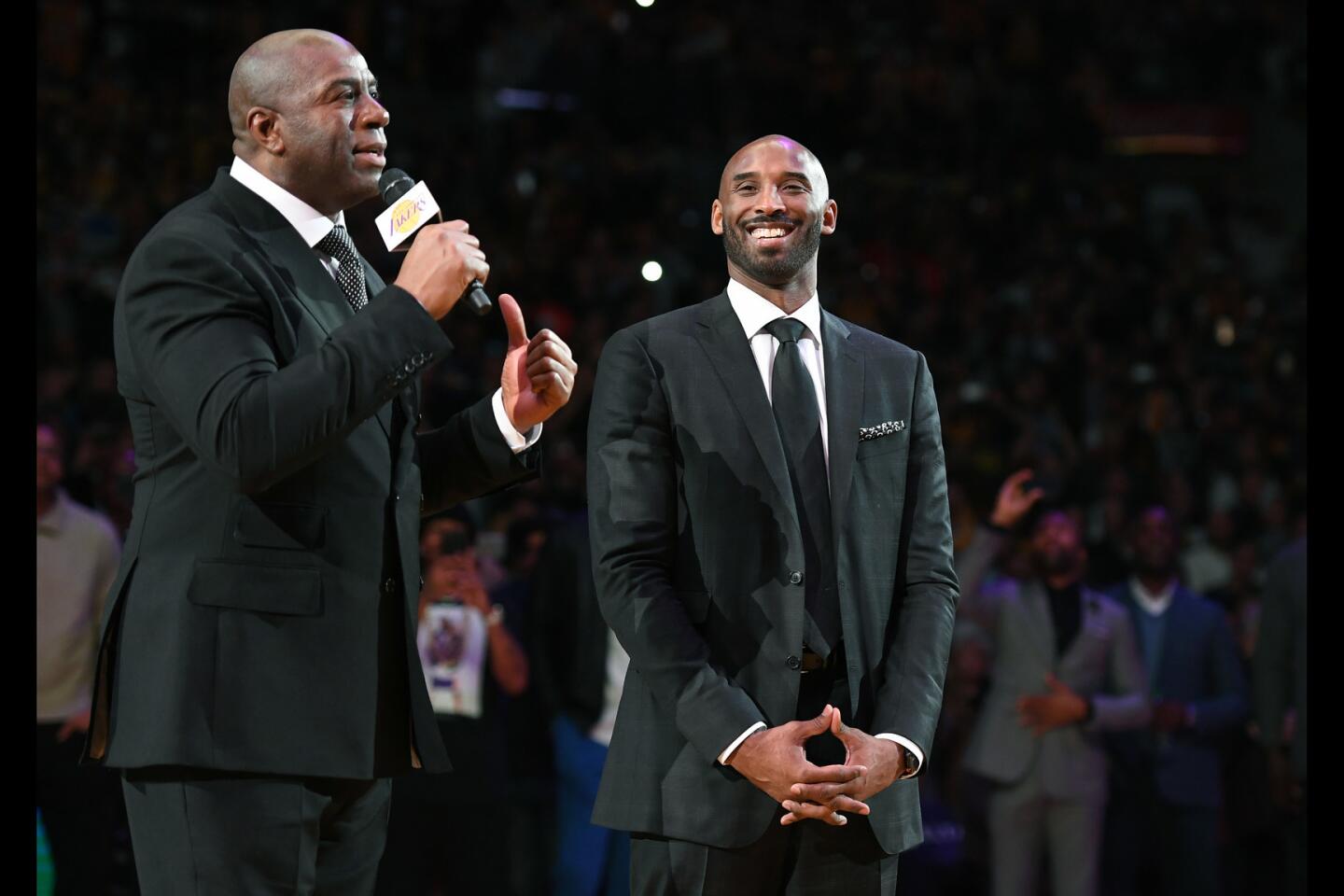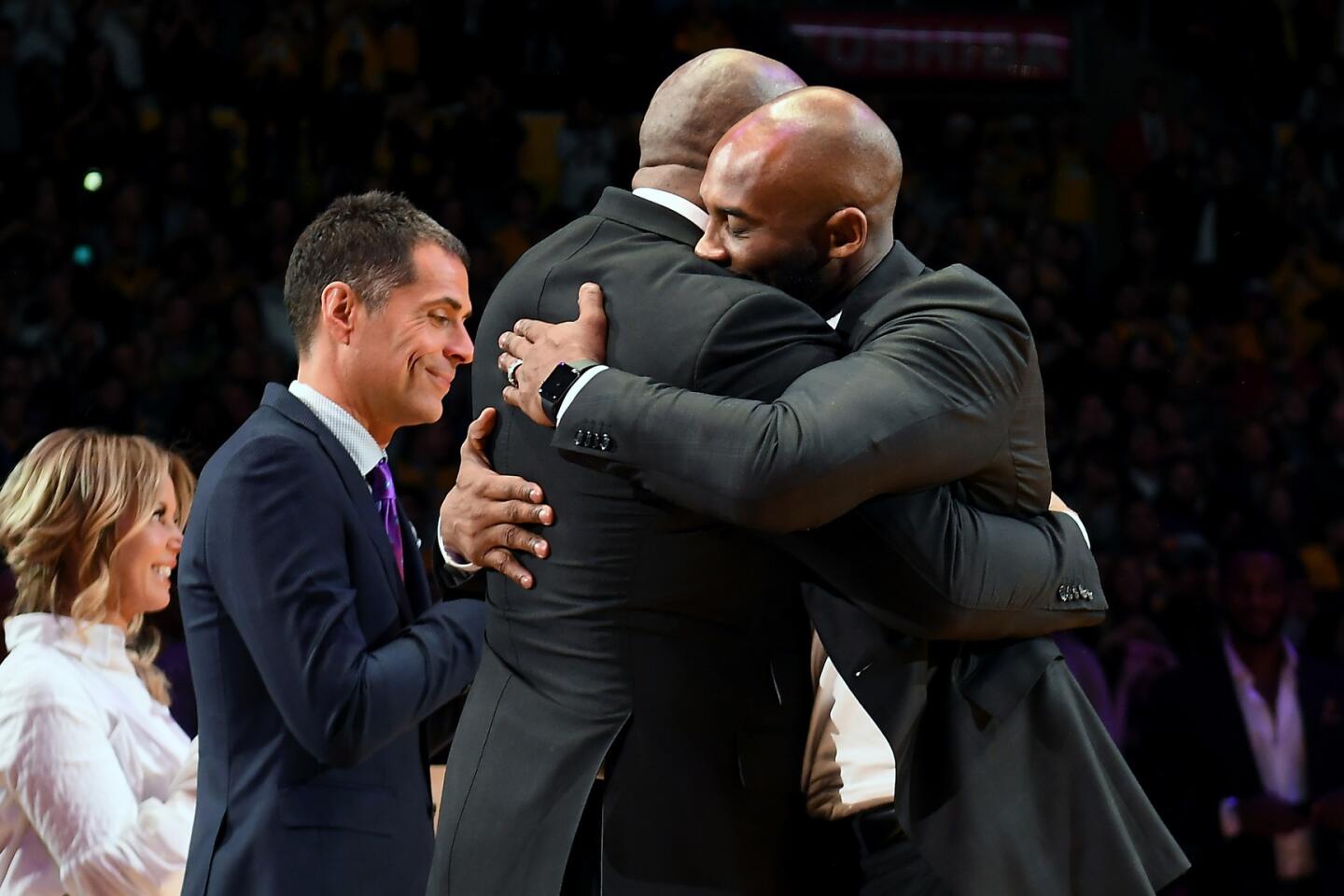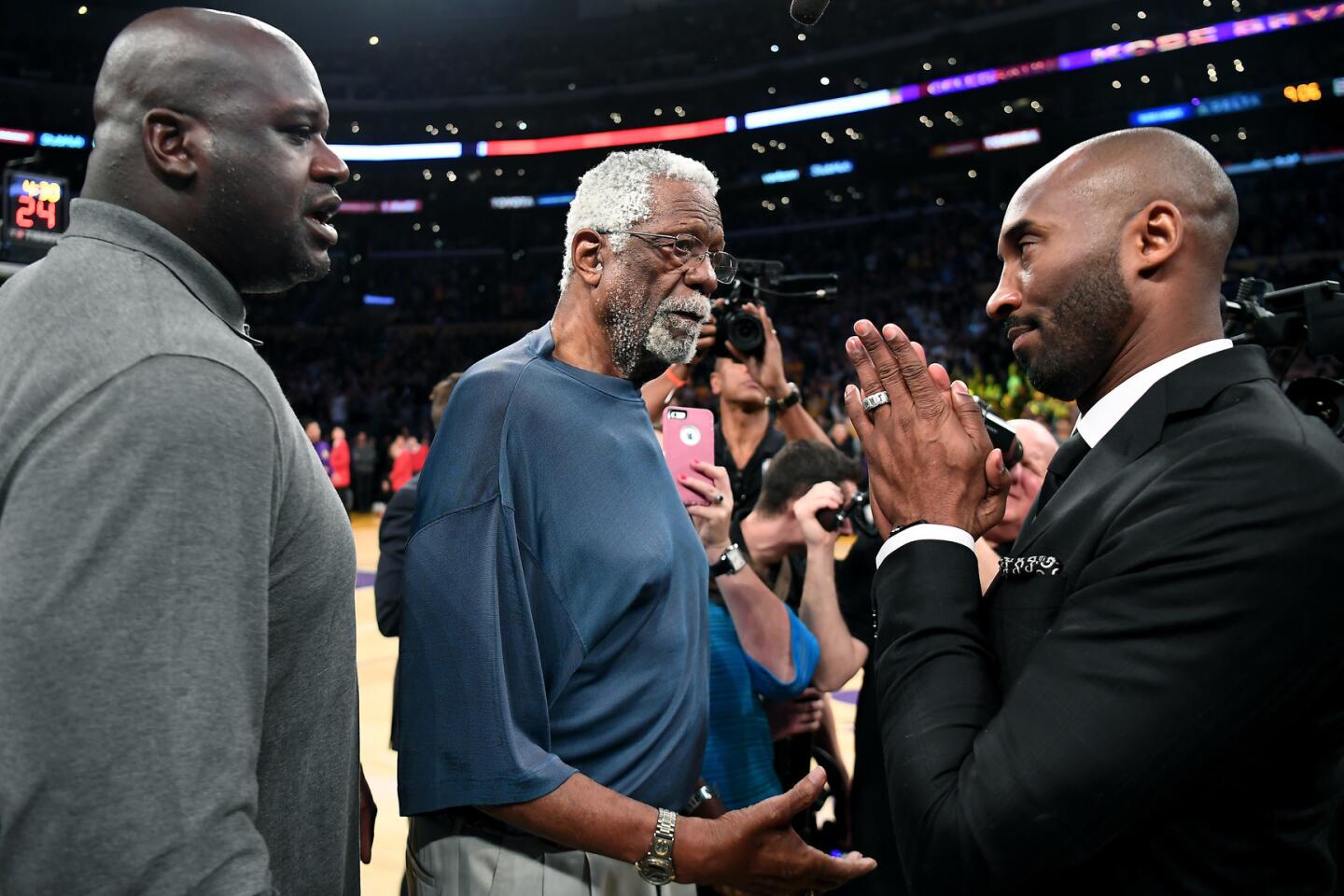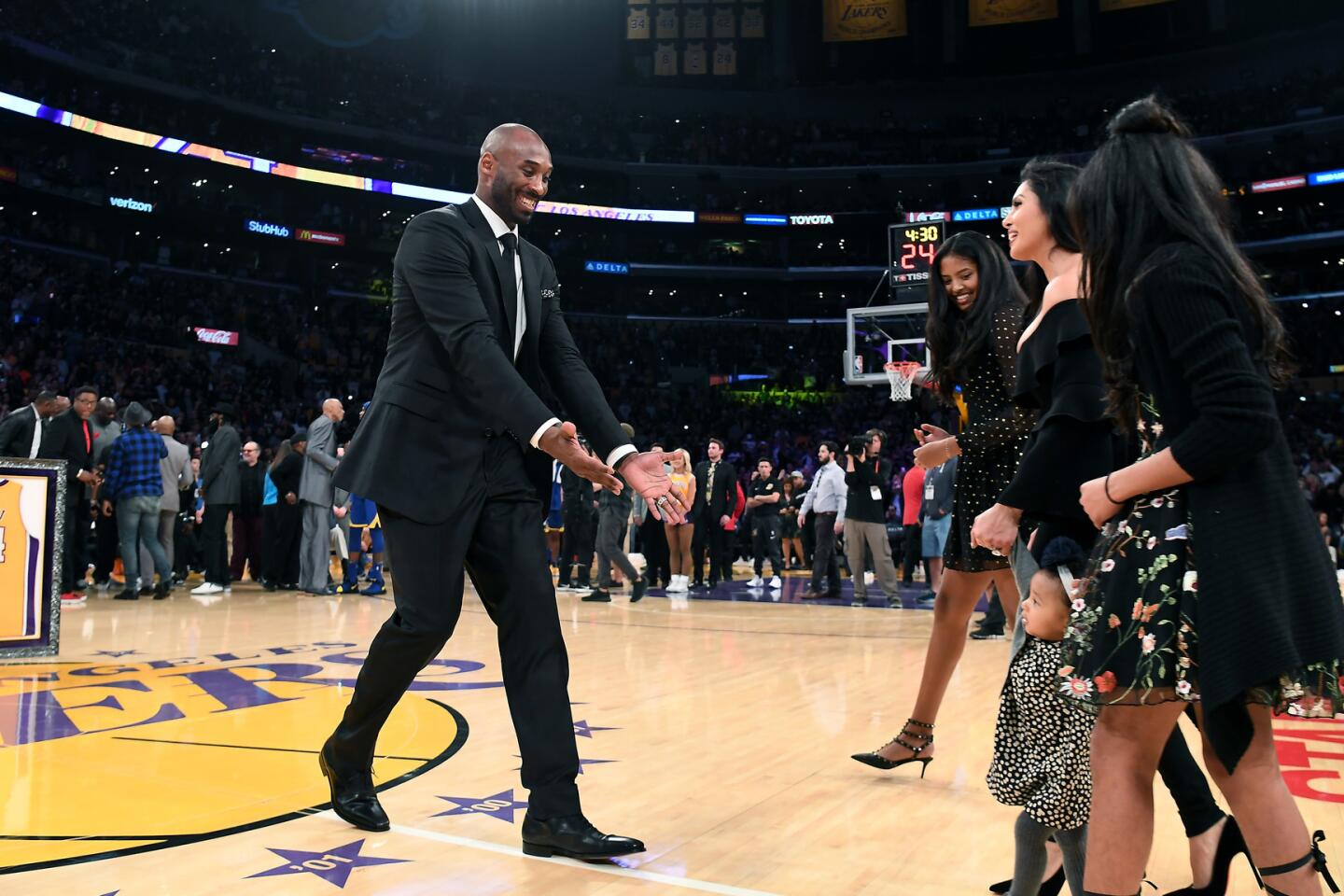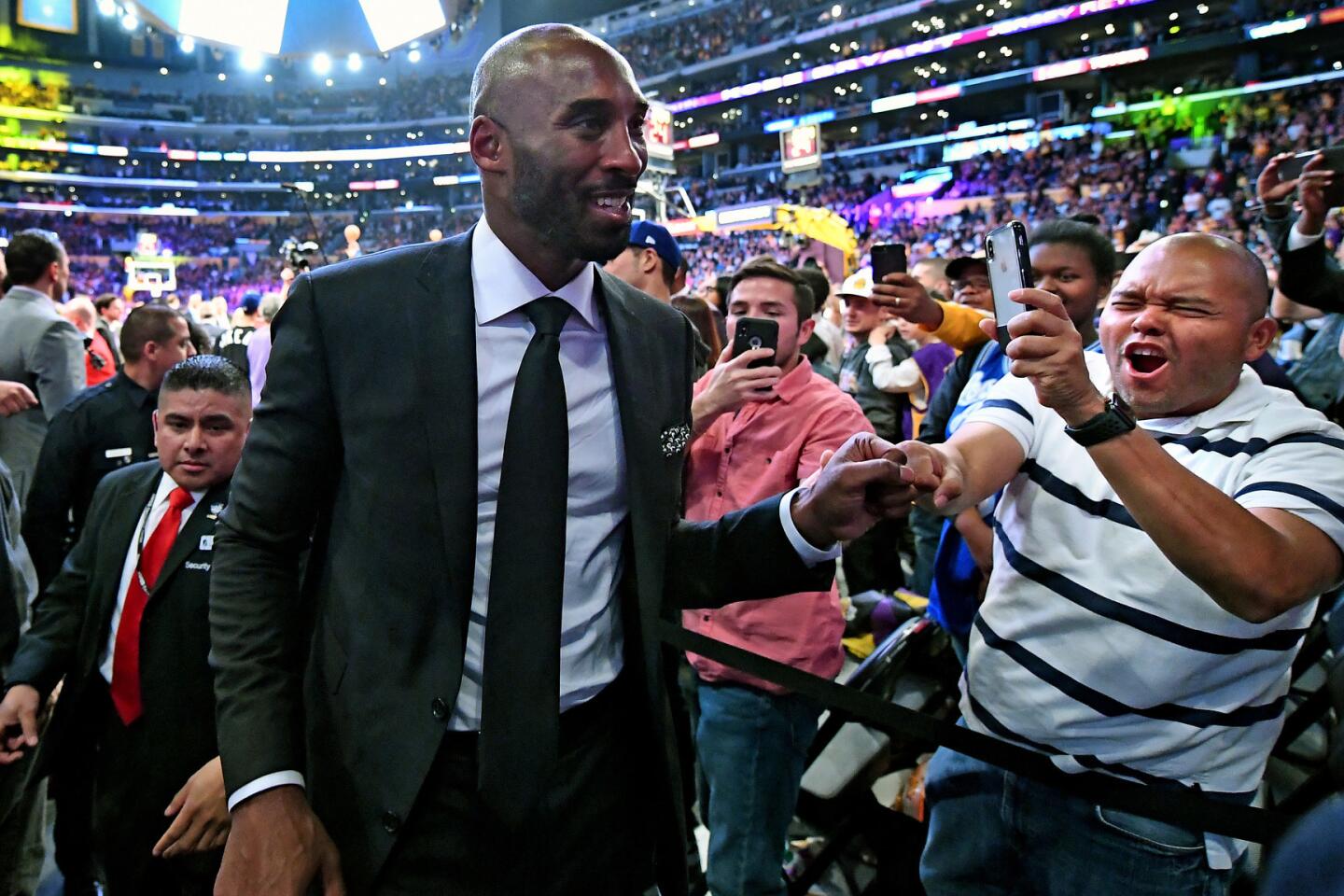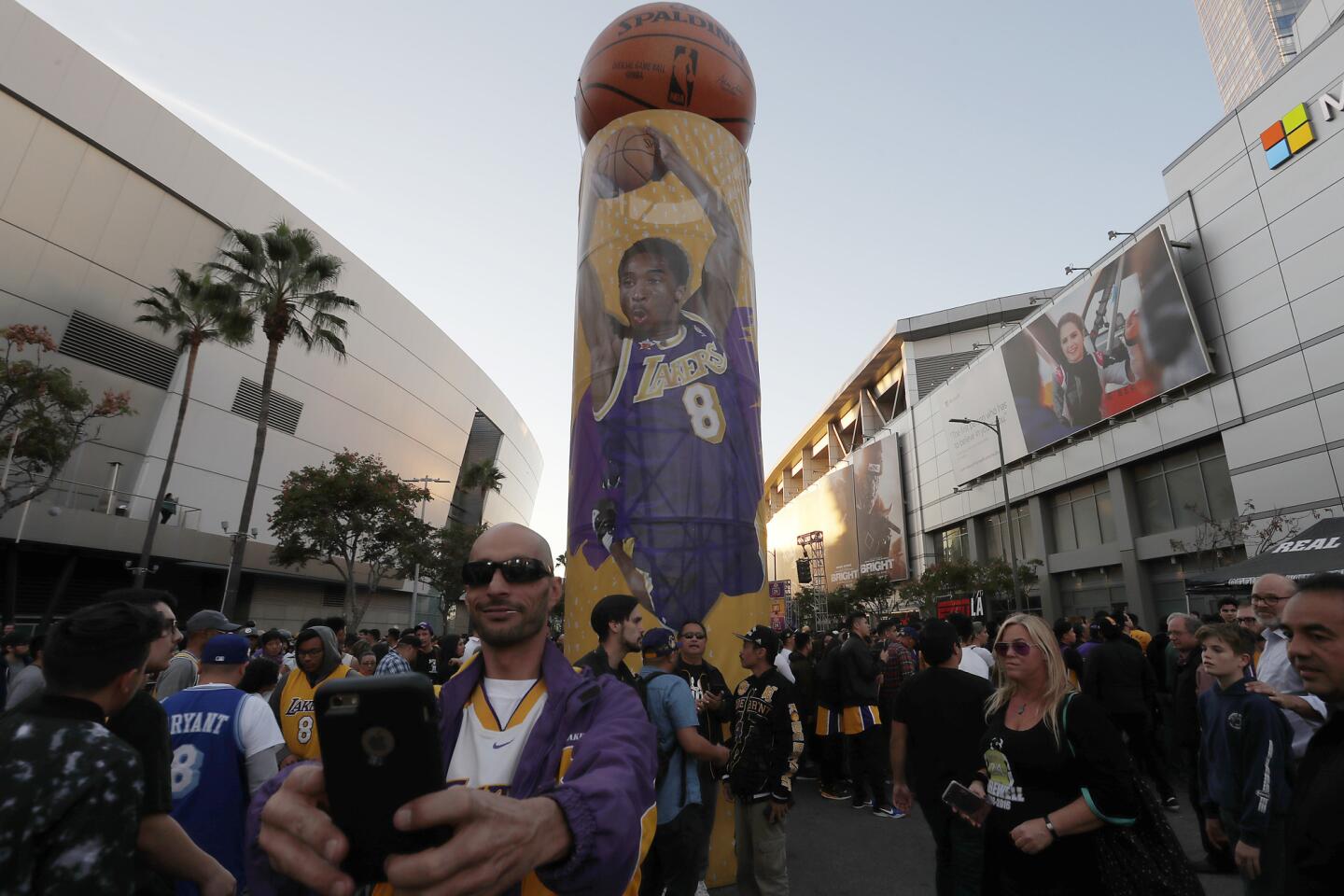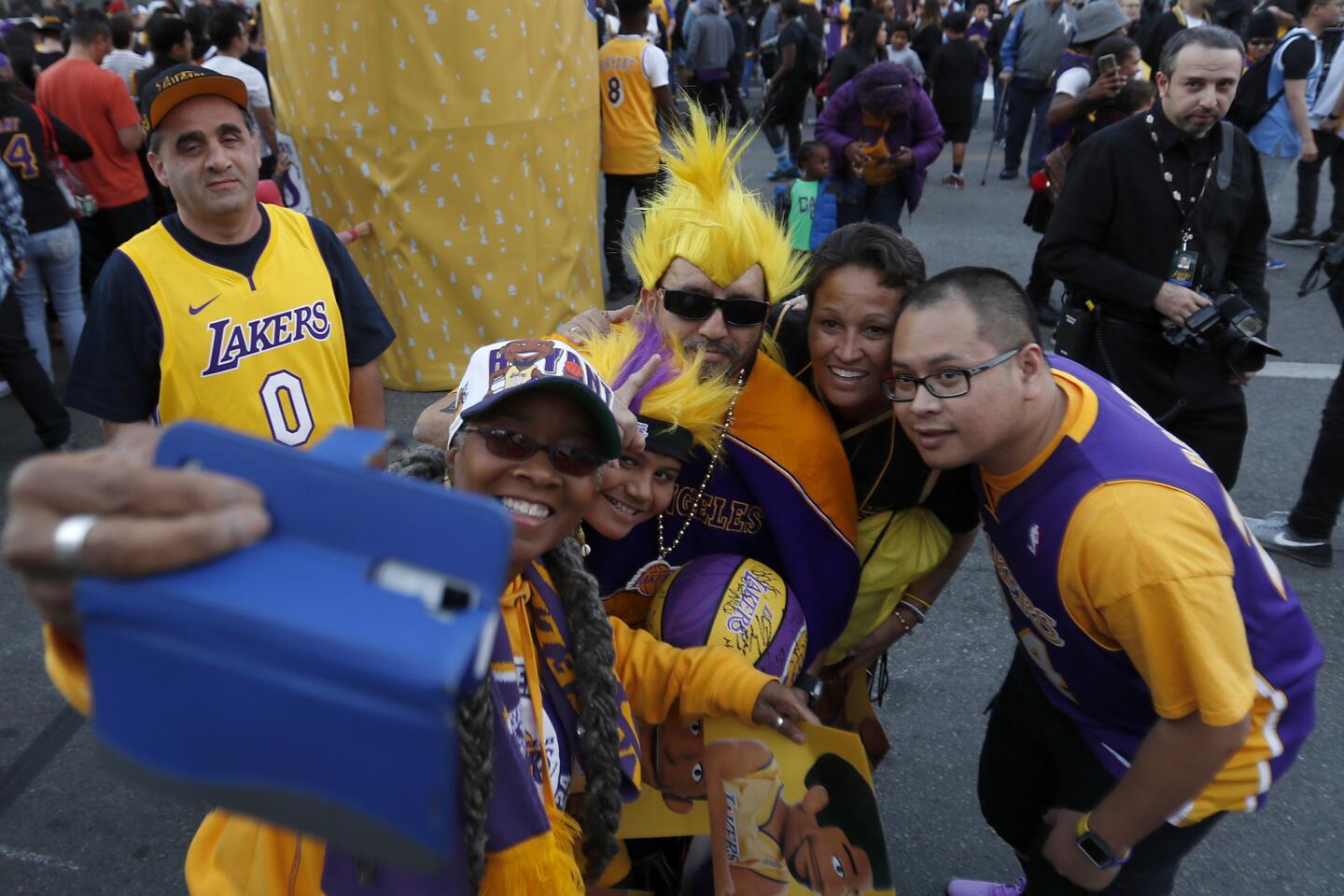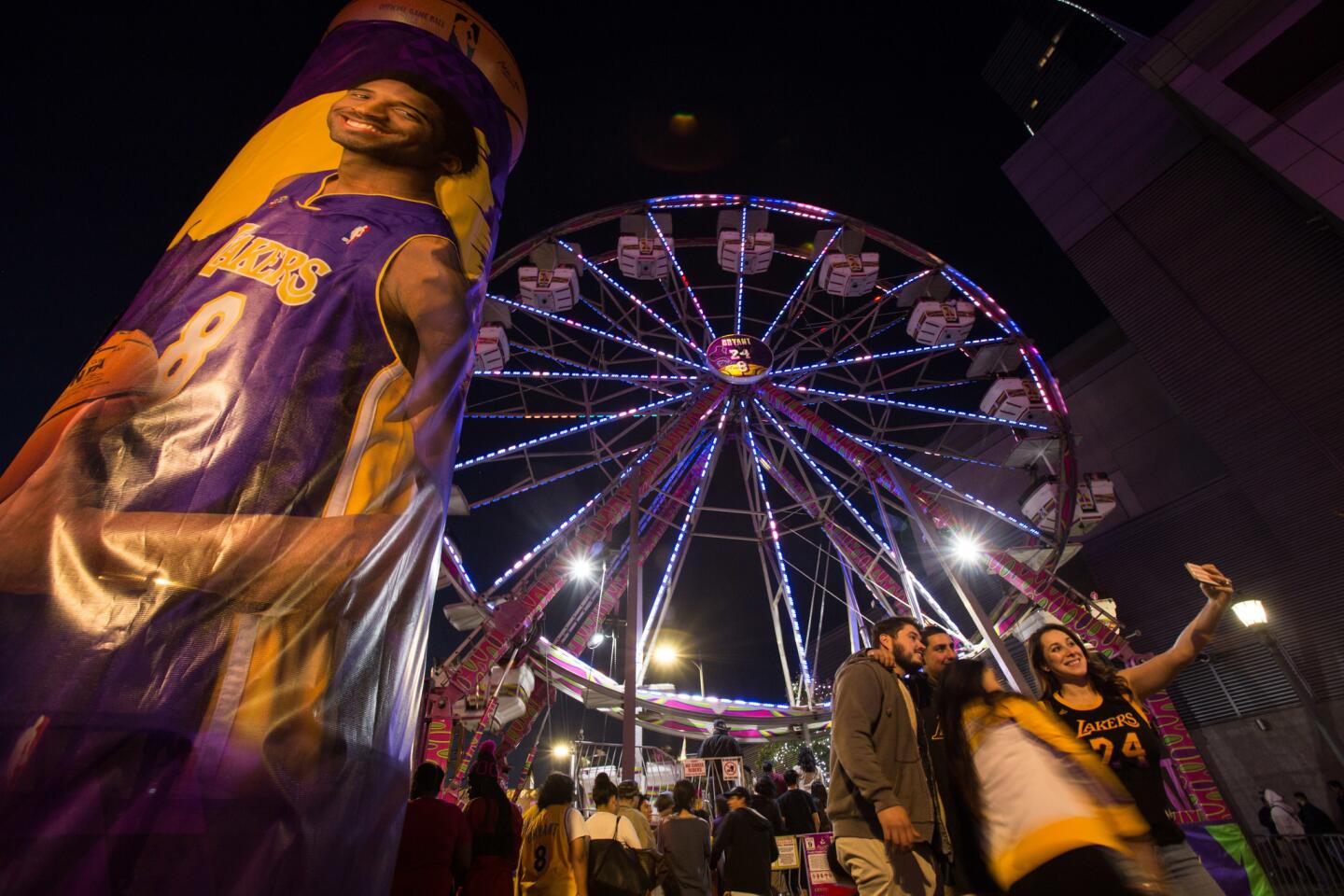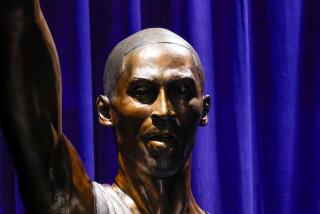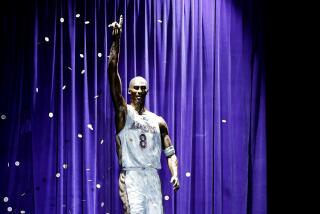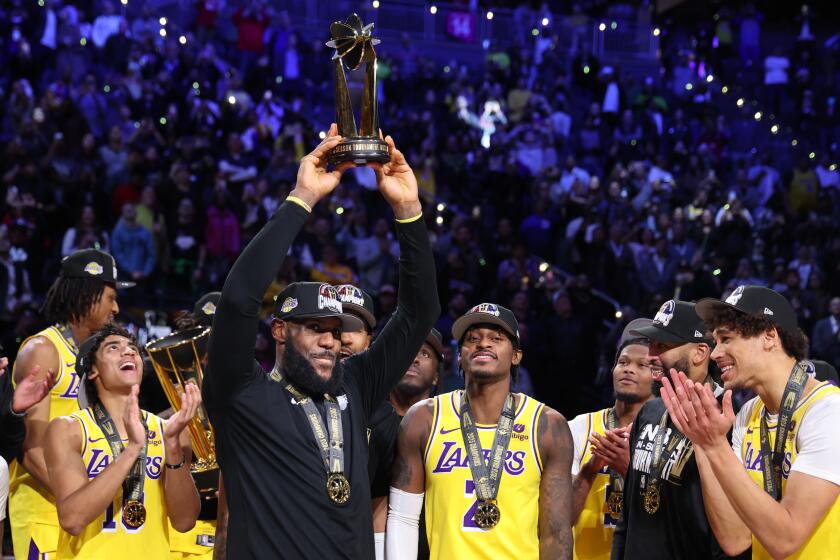As Kobe Bryant’s numbers are retired, he hopes his legacy inspires the next generation

The No. 8 and No. 24 jerseys now hang near Chick Hearn’s ceremonial jersey
Kobe Bryant walked the same path he walked hundreds of times during a 20-year career that earned him this moment. From the tunnel that leads into the Lakers locker room, he emerged just as his short film, “Dear Basketball,” concluded on the video board at Staples Center. As the crowd noticed they began to chant “M-V-P!”
Bryant smiled.
He strolled out before more than a dozen former teammates, before former general managers Jerry West and Mitch Kupchak who discovered him and created the teams with whom he won five championships. Allen Iverson waited nearby and so did Bill Russell. But it was another group that Bryant had in mind when he discussed the weight he placed on this moment.
It was a cluster of current Lakers who assembled near their bench, for once not the focal point of the action on the floor.
“Legacy is really important in the sense of what we’ve done is awesome, but I think what’s more important for a legacy is how that affects the next generation,” Bryant said two hours before the ceremony. “The jerseys that hang in the rafters now, the impact that they had on me led to us being in this moment right now. That’s the true mark of a legacy, is how well it impacts the next generation.”
The Lakers retired two jerseys Monday night, both bearing Bryant’s name: The No. 8 he wore for the first part of his career now hangs to the right of broadcaster Chick Hearn’s ceremonial jersey, and the No. 24 he wore for the second half hangs to its left.
“We are retiring both your numbers because if we separated [them], each of those players would qualify for the Hall of Fame,” said Jeanie Buss, the Lakers’ controlling owner and president, with her voice catching from the emotion she felt. “… Thank you for staying loyal to the purple and gold and remaining a Laker for life when it might have been easier to leave.”
Bryant wore 8 when he and Shaquille O’Neal won three championships together, when they feuded publicly and when he decided, for the sake of his legacy, he needed to separate himself from his accomplishments with O’Neal.
“We’ll be remembered as the most enigmatic, controversial, dominant one-two punch ever created,” O’Neal said in a tunnel during the second quarter. “A.k.a. the best Laker duo ever. …
“I’m probably the most dominant Laker. But I never wanted to be the greatest there is. Kobe, ever since he came in, told me he wanted to be the greatest greatest. You could tell by his work ethic and the way he played.
“The conversation is between him and Magic [Johnson], but if you ask me I’m going Kobe then Magic.”
For this game, O’Neal sat courtside with his sons.
Bryant wore 24 when he asked for the Lakers to trade him, when they built a new championship team around him instead and when he won two more titles, surpassing O’Neal’s total.
Asked to choose which number meant more, Bryant demurred. Pressed again, he chose 24. Those were the harder years, when his body didn’t cooperate as much. He appreciated those more.
As he introduced Bryant during the ceremony, Johnson, the Lakers president of basketball operations, asked Bryant to be a unifying force for the country, saying he brought the city of Los Angeles together for 20 years. And Bryant, when it was his turn, spoke of the future.
“It’s about embodying the spirit that exists in those jerseys up there and carrying the organization forward so the next 20 years are better than the last 20 years,” Bryant said.
Monday night offered a glimpse into that future. The Lakers battled the NBA champion Warriors into overtime before Golden State prevailed 116-114.
Bryant sat courtside with his wife, with whom he now gets to have breakfast regularly. His daughter Bianka sat on his lap and writhed around as 1-year-olds do.
A few hours prior, Bryant walked into the arena with his family around him, pushing Bianka in a stroller from the loading dock, internally praying the flashing lights from cameras didn’t wake her. He knew she’d be a handful if they did.
This walk toward the Lakers locker room, was a walk he’d made so often, but one that felt very different now.
“I’ve had a lot of players and former players come up to me in the last year, like genuinely concerned, like, ‘Are you going to be OK?’ ” Bryant said. “I’m like, ‘Uh, yeah, I’m going to be all right.’ They say, ‘Listen, it’s going to be progressive. First week, it’s going to be a serious state of depression. Second week you’re going to be angry. Third week, you’re going to start coming around, you’re going to have a level of acceptance.’ ”
Bryant chuckles at those conversations. He said he didn’t feel any of that after he retired in April 2016. He found other passions. His future diverged from the Lakers’ future in as many ways as they remained entangled.
“The thing about sports is that the chapters are coming, whether you like them or not,” Bryant said. “The stories are being written now, right? The legacies are being created now.
“For the players that are here now … just work on your game, the little details of it. How do you get better, studying film, then as time goes on you’ll look back at this beautiful thing that’s being created. But in the moment it’s created, you don’t know.”
Follow Tania Ganguli on Twitter @taniaganguli
More to Read
All things Lakers, all the time.
Get all the Lakers news you need in Dan Woike's weekly newsletter.
You may occasionally receive promotional content from the Los Angeles Times.
